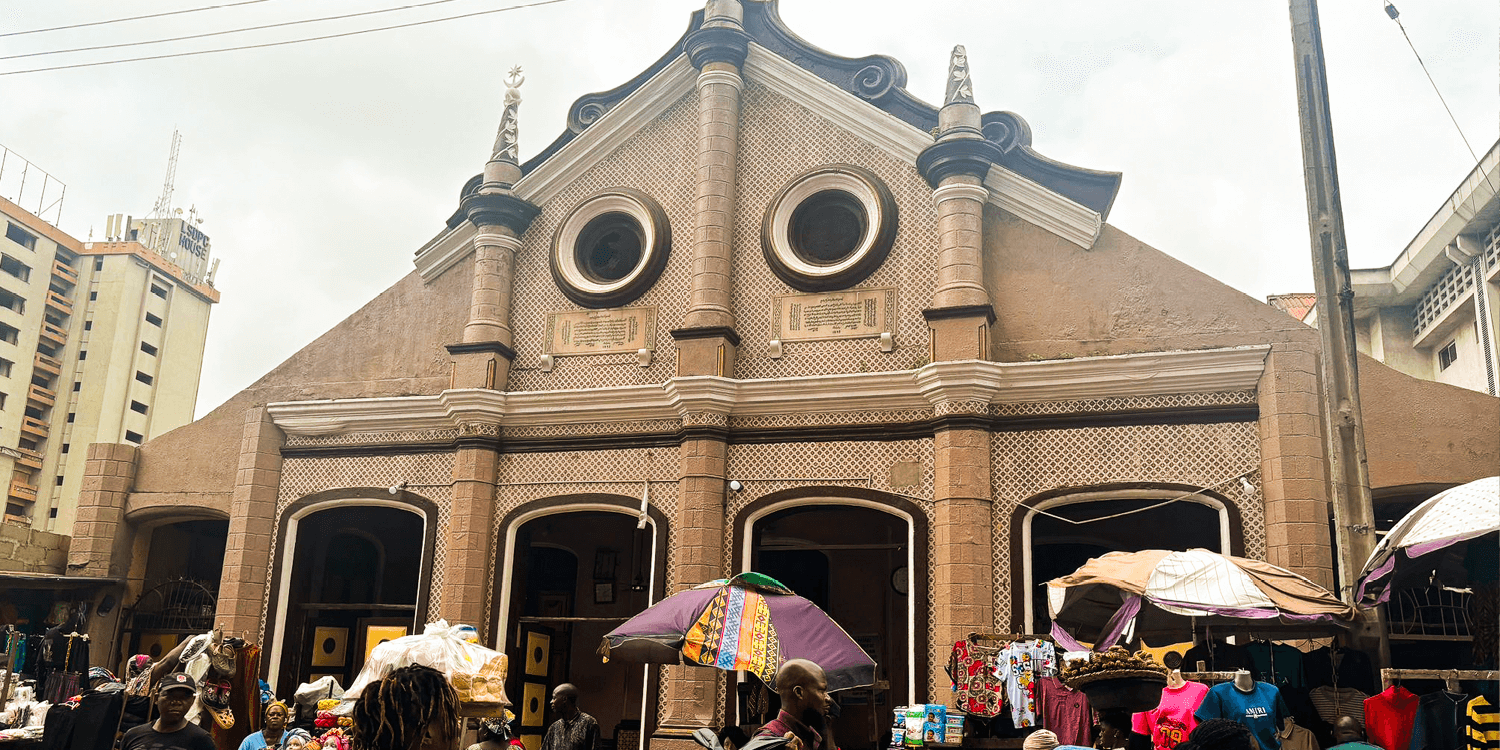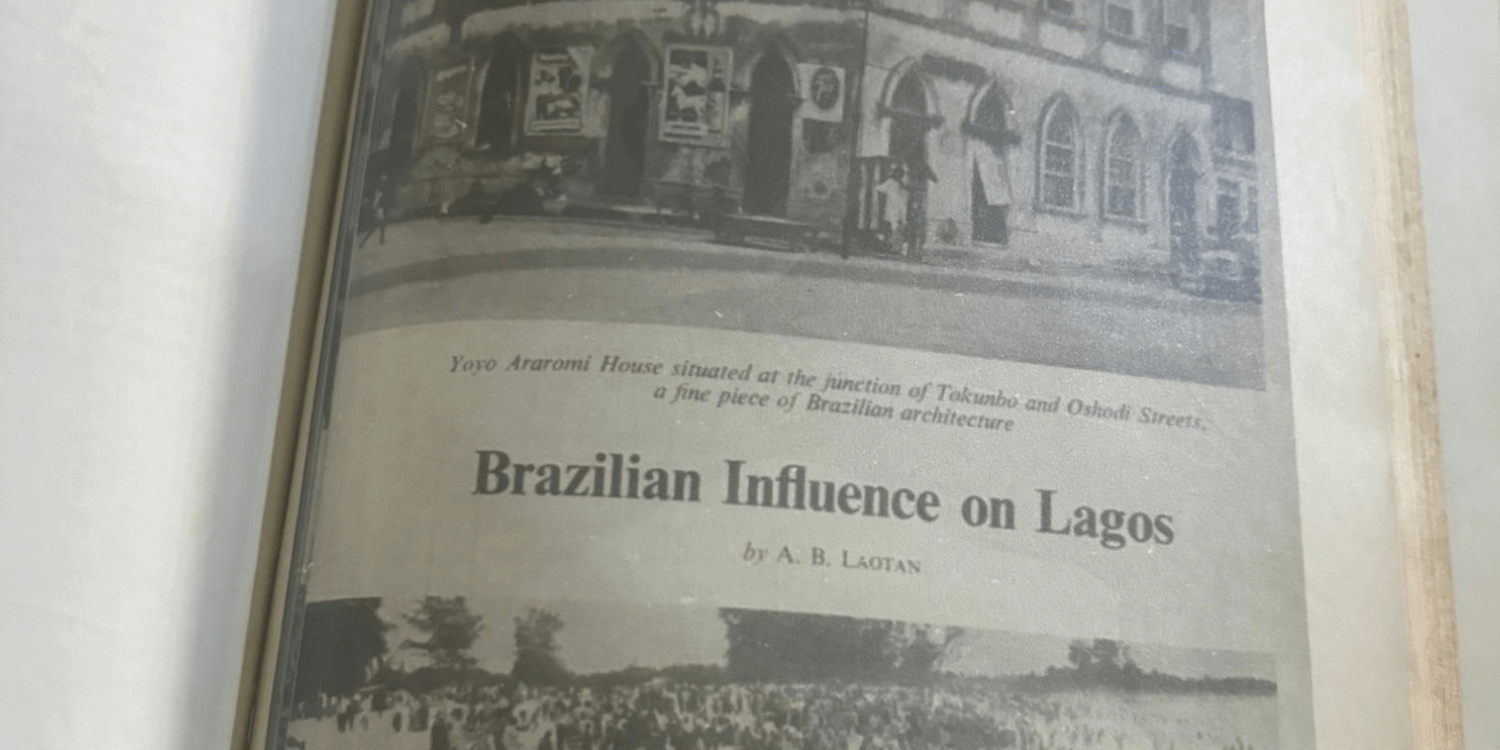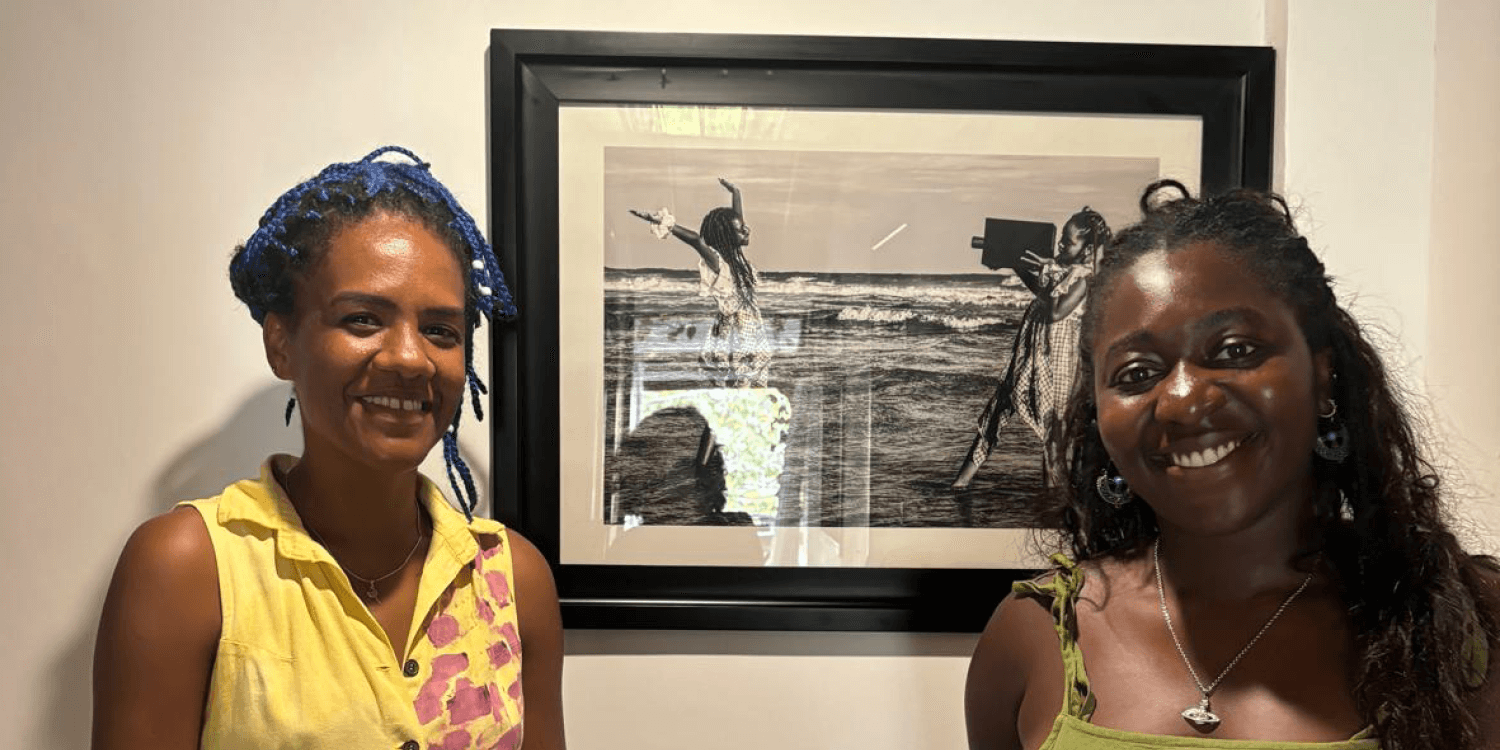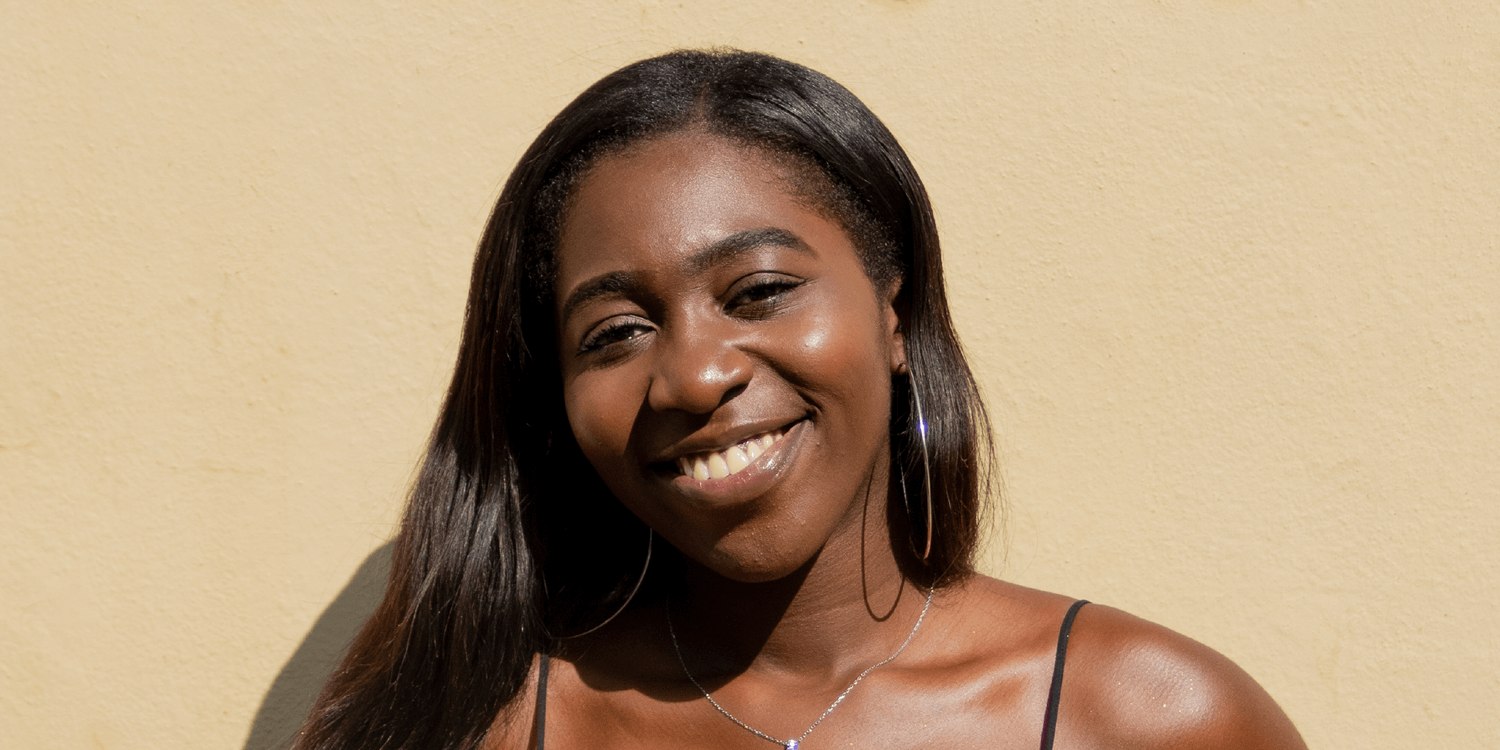We are excited to welcome Pelumi Odubanjo, a British-Nigerian curator, writer, and researcher, to G.A.S. Lagos as our last resident in August. Based between London and Glasgow, Pelumi’s practice spans photography, multidisciplinary research, curatorial work, and ecology. Currently a PhD candidate in History of Art at the University of Glasgow and a James McCune Smith Scholar, her work engages with photographic archives, artists, and cultural artefacts to explore dialogues across global Black diasporas and geographies.
During her two and a half weeks residency, Pelumi aims to connect with communities and individuals whose research aligns with hers. She is particularly interested in the history of the Agudas who are descendants of freed Afro-Brazilian enslaved people in Lagos and in understanding how their lives, artistic expressions, and heritage have been documented and remembered over time. Hoping for an active and immersive experience, Pelumi intends to document this process extensively, through visits to archives, historical buildings, and cultural spaces, including the Afro-Brazilian Cultural Centre in Lagos, as well as sites in Oshogbo. Her research will also focus on the social histories of women within the Aguda community, while fostering connections with individuals involved in the Nigeria-Brazil project, including members of the Gomez and Marinho families.
 Shitta-Bey Mosque, Lagos, Nigeria, an Afro-Brazilian architectural landmark completed in 1894. Image courtesy of the artist.
Shitta-Bey Mosque, Lagos, Nigeria, an Afro-Brazilian architectural landmark completed in 1894. Image courtesy of the artist.
What is the current focus of your creative practice?
My current creative practice explores the historical and contemporary relationship between Brazil and the West African diaspora—particularly Nigeria—through vernacular image-making. By examining how these everyday images relate to Blackness in Brazil, my research investigates their material and aesthetic roles within the broader context of Black Atlantic studies.
What drew you to apply for this residency and how do you think it will inform your wider practice?
My residency at G.A.S. will provide an opportunity to research communities of Brazilian returnees in Lagos, beginning with the Agudas—descendants of freed Afro-Brazilian enslaved people who settled in Nigeria. I will explore the ecologies of Afro-Brazilian life on Lagos Island and how these have been preserved through various sites of memory and conservation. Supported by the resources and expertise provided by G.A.S., I will build on prior research conducted in Salvador, Brazil, focussing on what I consider to be living memorials of the Agudas in Lagos.
 Brazilian Influence in Lagos by A.B. Laotan. Image courtesy of the National Archives of Nigeria, Ibadan,
Brazilian Influence in Lagos by A.B. Laotan. Image courtesy of the National Archives of Nigeria, Ibadan,
Can you give us an insight into how you hope to use the opportunity?
I will use this opportunity to connect with Aguda communities in Nigeria, their descendants, and regional researchers. I also plan to visit archives and revisit oral histories that offer both firsthand and inherited accounts, materials, and records of cultural traditions that may have survived the journey back across the Atlantic.
 Pelumi Odubanjo and Artist Vilma Neres in Salvador. Image courtesy of the artist.
Pelumi Odubanjo and Artist Vilma Neres in Salvador. Image courtesy of the artist.
RESIDENCY ARCHIVE
Event: Picturing Return - Afro-Brazilian Archives in Nigeria
Event Date: September 3rd, 2025
On September 3rd, 2025, G.A.S. Lagos hosted Picturing Return: Afro-Brazilian Archives in Nigeria, an evening that traced the histories, images, and narratives of the Aguda community and their enduring presence in Nigeria. Bringing together Pelumi Odubanjo whose practice examines the historical and contemporary links between Brazil and the West African diaspora, and scholar, curator, and researcher Oludamola Adebowale, the event explored the living archive of Afro-Brazilian presence in Nigeria.
 (L-R) Oludamola Adebowale in conversation with Pelumi Odubanjo.
(L-R) Oludamola Adebowale in conversation with Pelumi Odubanjo.
About Pelumi Odubanjo
Pelumi Odubanjo is a curator, writer, and PhD researcher who works between Glasgow and London with a focus on exploring creative dialogues across global Black geographies. Pelumi is currently a PhD candidate at the University of Glasgow and a recipient of the James McCune Smith Scholarship, where she is researching the historical and contemporary relationship between Brazil and Nigeria through the production of vernacular images. Pelumi is a Curator at the Glasgow International and is the ICF’s (The International Curator’s Forum) Ten.8 Research & Curatorial Fellow.
 Photo of Pelumi Odubanjo. Image courtesy of the artist.
Photo of Pelumi Odubanjo. Image courtesy of the artist.
Pelumi’s residency is generously supported through funding from the James McCune Smith Scholarship at the University of Glasgow.
